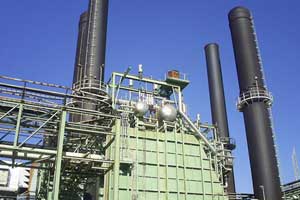WASHINGTON: Computer hackers have begun targeting power plants and other critical operations around the world in bold new efforts to seize control of them, setting off a scramble to shore up aging, vulnerable systems.
 Cyber criminals have long tried, at times successfully, to break into vital networks and power systems. But last month, experts for the first time discovered a malicious computer code — called a worm — specifically created to take over systems that control the inner workings of industrial plants.
Cyber criminals have long tried, at times successfully, to break into vital networks and power systems. But last month, experts for the first time discovered a malicious computer code — called a worm — specifically created to take over systems that control the inner workings of industrial plants.
In response to the growing threat, the Department of Homeland Security has begun building specialized teams that can respond quickly to cyber emergencies at industrial facilities across the country.
As much as 85 percent of the nation’s critical infrastructure is owned and operated by private companies, ranging from nuclear and electric power plants to transportation and manufacturing systems. Many of the new attacks have occurred overseas, but the latest episode magnified worries about the security of plants in the U.S.
“This type of malicious code and others we’ve seen recently are actually attacking the physical components, the devices that open doors, close doors, build cars and open gates,” said Sean McGurk, director of control systems security for Homeland Security. “They’re not just going after the ones and zeros (of a computer code), they’re going after the devices that actually produce or conduct physical processes.”
Officials have yet to point to any operating system that has been compromised by the latest computer worm. But cyber experts are concerned that attacks on industrial systems are evolving.
In the past, it was not unusual to see hackers infiltrate corporate networks, breaking in through gaps and stealing or manipulating data. The intrusions, at times, could trigger plant shutdowns. The threat began to escalate last year, with cyber criminals exploiting weaknesses in systems that control what the industries do.
The latest computer worm, dubbed Stuxnet, was an even more alarming progression. Now hackers are creating codes to actually take over the critical systems.
In many cases, operating systems at power plants and other critical infrastructure are decades old. Sometimes they are not completely separated from other computer networks used by companies to run administrative systems or even access the Internet.


